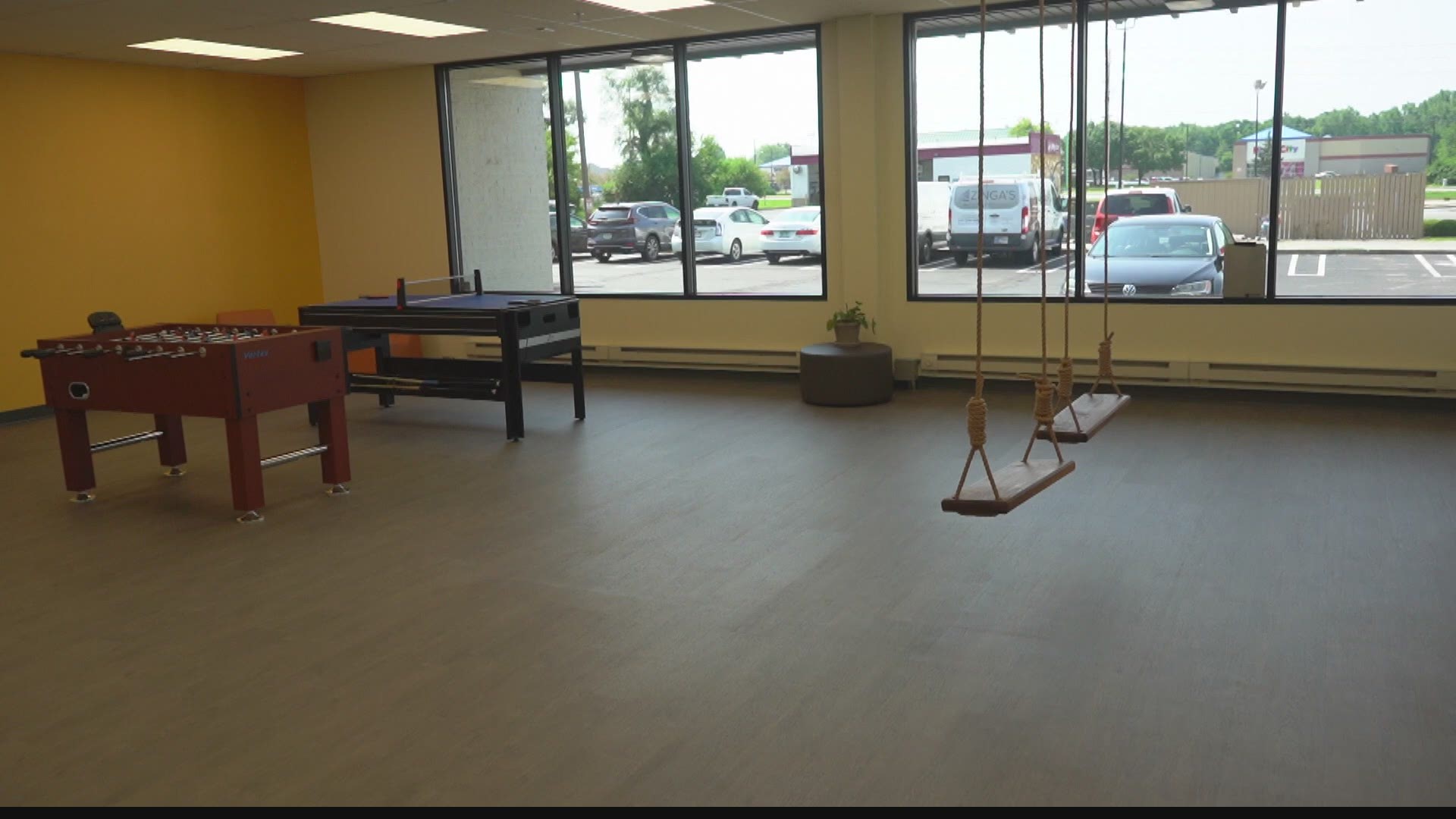INDIANAPOLIS — A local non-profit that works with survivors of human trafficking and commercial sexual exploitation opened a new space on the city’s east side.
Ascent 121 provides free, long-term trauma recovery services for survivors of human sex trafficking and exploitation.
Human trafficking is an illegal industry worth more than $150 billion and it's happening right here in Indiana.
"It's absolutely happening here, it's just more education needs to happen about what it really looks like and challenging those preconceived notions of what it looks like," said Trisha Prickett, the "Lift" program director at Ascent 121.
Human trafficking can take many forms, from labor to sex trafficking.
Ascent 121 serves anyone under the age of 24, regardless of gender or how one might identify. The youngest survivors they've worked with were 8 years old.
"A lot of people think it's like the movie, 'Taken,' like being kidnapped, when a lot of the time, the exploiter is someone that they know who's spent time grooming and cultivating a relationship with them," Prickett said.
Traffickers will often pose as friends, lovers or someone who loves and cares for you.
"'I'm going to give you food, shelter, nice things.' So red flags in the beginning are always...this is what I call 'love bombing' - you're the center of this person's world, they make you feel special in a way no one else has. This showering of attention and as soon as they know that they have you, that changes," said Sarah Hurley, peer mentor program manager at Ascent 121.
Rehabilitation from having one's vulnerabilities exploited takes time and support. Ascent 121 used to primarily provide home-based programming, but now with this facility, they can provide a sensory room for somatic-based therapy, which can be helpful when a person dissociates or needs help grounding.
"People will disconnect from their body or their feelings and their mind is someplace else and the senses, all five of them, are very powerful. They can help bring someone back in their body," said Hurley.
Group therapy
"Coming from another peer, it hits a different way than an adult provider who says the same thing," said Prickett.
"Simply being in contact with someone doesn't qualify as a quality relationship and a lot of people who have been through trafficking feel they can identify with people their age, so being someone who's been through that can help normalize not that experience, but the fallout of that and make you feel not so alone," said Hurley. "Also, seeing people in a different place in the recovery process can give you hope."
The programs at Ascent 121 help victims take back the control. Like the photography-based program "Viewfinder," which is especially empowering for survivors who have been exploited from behind a lens.
"It's their opportunity to be able to feel empowered and a sense of autonomy and take back control of the lens and perceptions and things like that," Hurley said.
Having a kitchen, playroom, therapy rooms and open spaces for therapists is helping Ascent 121 to educate the public on what human trafficking really looks like, and to continue their work of empowering survivors so that rather than just continue to survive, they can begin to live.

